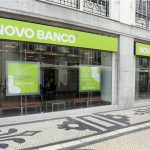Can Portuguese companies navigate challenges of the EU’s Green Deal?
Can Portugal’s companies survive the times we’re living in today when the EU’s ecological pact is facing multiple challenges?
On Wednesday, a European Commission proposal was published to make the directives regarding the Green Deal more flexible, creating a simplified package that would remove 80% of companies from the scope of the Corporate Sustainability Reporting Directive (CSRD) and Corporate Sustainability Due Diligence Directive (CSDDD) and delays reporting timelines, taxonomy and even the Carbon Border Adjustment Mechanism (CBAM).
The simplification of corporate reporting laws is a part of the Commission’s work programme for the year, according to the announcement. By 2029, the EU’s executive body wants to reduce administrative burdens for all companies by 25% and for small and medium-sized businesses by 35%.
But the question is whether regulation is in fact the problem or is it rather a lack of connection between the cooperation of various bodies, the transfer of knowledge from universities to companies, the risk or fear of risking in certain high technologies?
These were questions that were raised on Thursday at the conference ‘Going Sustainable: Opportunities for Portuguese companies in the US and Europe’ organized by the American Chamber of Commerce in Portugal (AmCham) that took place at Lisbon’s Católica University with three panels discussing: ‘Preparing companies for the future – global risks and opportunities’; ‘The European Green Deal and beyond – Sustainability as a driver for Portuguese growth’; and ‘Sustainable Horizons – Strategies for Portuguese companies in the US market’.
Lesley Rubio, Country Head of Citi Portugal and President of AmCham’s Sustainability Commission highlighted five key messages that would dominate the Going Sustainable conference. First, sustainability remains a priority and a journey. It has a renewed lens around opportunity, innovation, as well as an expanded understanding of national security, energy security and energy access, and water scarcity and how these challenges are dealt with.
Second, the reasons why. What is sustainability and how do we think and talk about it?
Sustainability, she said, is a way of “ensuring that our businesses, cities, and societies are resilient and that we are securing the supply of resources that we rely on to live, progress and conduct our businesses”, such as energy, water, and clean air.
The third message is the challenges that businesses have and need to manage such as physical risk challenges as well as the risks of a disorderly transition.
Businesses needed to manage the complex space of regulation, divergent policies, and the demand of stakeholders whether customers or investors.
Fourth, as for the EU and the Green Deal, it has some important decisions to make in balancing its drive for competitiveness with its ambitious environmental objectives.
And fifth, the leading role of Portugal in this transformation towards sustainability. “So far Portugal had led the way as a pioneer in sustainable innovation, and it continues to provide a competitive environment for sustainability projects and opportunities to be scaled and tested”, said Lesley Rubio.
Portuguese companies were in a unique position to lead and leverage this transformation with companies from diverse sectors, from the financial sector such as the bank Santander, construction such as Mota-Engil, transportation (TAP Air Portugal, Efacec and Brisa), industry (BA Glass), clean technology and circular economies (The Loop), Pharma (Hovione) and forestry (The Navigator Company) to name a few.
Having attracted awards and recognitions on international standards as pioneers promoting change and having a positive impact on the economy and the lives of people, the AmCham Sustainability Commission which drove the event continues to believe in the value of sharing perspectives and best practices.
Two Portuguese sustainability case studies – Hovione and The Navigator Company
Two companies that have been developing and implementing a corporate sustainability policy for over 20 years when 10 years ago no one was discussing legislation but policies were evolving, are the Pharma company Hovione and forestry and paper products company The Navigator Company.
Sustainable Horizons panel moderator Luís Amado (Capgemini) pondered whether current problems on meeting the EC’s ambitious sustainability targets were a “hiccup” on the sustainability journey or whether sustainability was advancing despite these as the world realises its importance and value for the future of the planet.
“It is a journey that companies and stakeholders must take together. We have one common resource and that is the Earth and if we don’t do it together, we won’t survive”, he said.
Sustainability is efficiency
Sustainability was, in the view of Paula Guimarães, director of Sustainability at Navigator, about efficiency, and to be efficient in terms of timings.
Paula who has been with The Navigator Company for 30 years, explained how The Navigator Company has a forest-based integrated business model to produce paper (printing and writing), tissue, as well as managing the landscapes that supply the raw materials for its products.
Jon Peers, Global Director of Sustainability at Hovione stressed that there was “never a pinnacle to reach” on the sustainability journey; it was an ongoing process.
Based in Portugal and the US, Hovione was founded in 1959. It researches and investigates new chemical processes and medical devices and produces active ingredients for the international
Pharmaceutical industry. It has invested over US$120 million over the past six years.
In recent decades it has responded to the emerging needs of the pharmaceutical industry, investing in the development of chemical processes and the industrial production of new drugs, in particular active ingredients for inhalation, dry powder inhalers, and formulations for inhalers.
Hovione is also a major source of semi-synthetic tetracyclines and corticosteroids, and is the largest independent supplier of contrast agents – these three families of compounds make up most of its generic product portfolio.
But what makes these two companies competitive in the US market regarding sustainability?
Jon says it is important for Hovione “not to treat markets differently”, whether Europe, Asia or the US in terms of sustainability strategies because “sustainability has to be transversal in everything we do”.
“The US is a strong market for us and we have a number of strong US clients in our portfolio. We listen, work and collaborate with them on developing their products and manufacture on their behalf”, he explained.
“Hovione has always applied sustainability practices through innovation and science which is very key for what we do in the sector that we’re in”, he said.
The company can look back to the early 2000s in terms of the innovation at its facilities through to today where it is leading in the area of spray drying of active pharmaceutical ingredients (API).
This helps its clients in terms of the bioavailability of the drugs, which is a key piece in a pharmaceutical company’s delivery, and Hovione has been able to do that through constant investment in this innovation, and by working with excellent scientists and engineers.
Paula Guimarães (The Navigator Company) said the company had an innovation-based and sustainability led business model.
“We don’t just do things differently from one market to another. We have been in the US market for over 20 years, so it’s part of our history and what we are, and we have been effective at selling there even though the US paper industry has diverged somewhat from paper production and has moved into other segments”, she said.
Paula Guimarães says that The Navigator Company had done the same as Hovione in this respect, providing a good offer to the US market in quality paper with value added innovations such as lower weight and efficient resource use in the natural materials that paper is made from.
“When the US market buys our products they can be certain that we employ good use of forest fibres compared to other weights, and when compared on global competitiveness on raw material sources and those from other potential suppliers to the US market.”
A market leader
The Navigator Company has invested considerably in forest management, in the way it sources from the forests of other producers, contributing to technology transfer to other forrest producers in Portugal and Spain.
“When we source from other geographies, we have very strict policies on wood supply, investing also in certification, and on other mechanisms controlling the sources of the fibre that we buy,” said Paula Guimarães.
This means that the US market can be confident compared to other competitors that the source of material is a safe one on issues like deforestation and forest conversion based on its supply systems. “We are in the lead when it comes to many other companies”.
“As the company has been evolving in terms of its products portfolio and our models are sustainability led”, she added.
Sustainability and innovation – two sides of the same coin
Sustainability and innovation are two sides of the same coin says Jon Peers, and are among the divers for Hovione’s main R&D Campus at Lumiar in Lisbon where it has 240 scientists.
“Over time, from the amount of data the company has accumulated, we have been able to develop some very good modelling systems which help scientists model how a drug product may work so that we don’t have to conduct trial and error tests in terms of manufacturing, enabling us to scale quickly using computer modeling as a prediction tool”, he said.
The Navigator too has an integrated system involving the forests that it manages and the other forests of other companies that it influences and tries to improve, from its production processes for pulp and paper for printing and writing paper, tissue paper and on to other new bio-material products such as e-fuels and products using all the components of wood fibre other than cellulose, and which are very rich. (Wood fibres can be combined with thermoplastics to create strong, waterproof products for outdoor use, such as deck boards or outdoor furniture, for example).
The company also has an R&D and Innovation Centre focusing on forestry consultancy and on the various programmes that it has in the private sector, involving forest owners and producers, but also in technological consultancy looking at product properties and the innovations that can lead the company to new markets.
A world leader in patents
The Navigator Company currently has 95 in-house researchers and 45 registered patents from its ‘Raiz’ R&D Innovation Institute.
“We are one of the top 10 Portuguese organisations for registering international patents which says a lot about the work we have been doing in R&D, while on energy we are investing, researching, developing and innovating in energy efficiency, the use of biomass batteries, solar and wind technology.
The company is also investing in flexible paper-based and paper mold packaging, bio fuels, e-fuels (Bio-fuels are e-methanol, e-ammonia, and e-LNG), materials for hygiene and personal care, and even cosmetics.
“We’re very much making good use of the resources, all based on sustainable forest management at the landscape level, conciliating production forests with conservation forests. It currently has 108,000 hectares managed in Portugal with 12% managed for conservation purposes.
In fact, the company is monitoring and assessing more than 40 Natura 2000 Portugal natural habitats in which over a 1,000 flora and fauna species have been identified in forests of different groups (plants, amphibians, mammals and reptiles, etc).
“It’s not just about producing paper; it’s about managing landscapes and making them more resilient”, she said.
Sustainability through the entire value and supply chain
Jon Peers said that when he started 30 years ago it was about preventing pollution within your own gates, whereas today it involves value chains, supply chains, how partners operate both upstream and downstream. “Influencing clients through discussions is today really key for a transversal sustainability approach”.
“We can’t solve sustainability problems on our own and we can’t operate “in a silo” focusing only on what we do. You need to work with your clients and work with the markets in which you operate”, he said.
The importance of certification
Certification, too, was important and certificates at a basic level are often about complying with legislation.
“Certification is very market driven process but does make you review your own processes and prepare yourself to be a more resilient business and to innovate. It gives a competitive advantage and leads to improvements in efficiency, so I think certification is a good driver, and while at the start it may look like a challenge, it then becomes a part of the way you do business,” said Paula Guimarães.
Managing forests was no longer about telling contractors what to do, but also to look at the natural, social and cultural values in place and how to manage and monitor them.
Jon Peers added that regarding certification, whether referring to Business to Business or Business to Consumer – everyone, whether in a supermarket or retail store with a conscience would look at labels, and it is important that companies chose the right certifications to avoid any type of greenwashing associated with the products made, and so needed to be very confident as to what they brought in terms of value to the business and products.
“Certifications have continued to evolve with Hovione becoming a B Corp member (Certified B Corporations are businesses that meet the highest standards of verified social and environmental performance, public transparency, and legal accountability to balance profit and purpose.) as one of the first to be so in 2017 and has continued to evolve that in terms of our market space”, he said.
“Having a certification removes a lot of questions. It can help win business, and is a good demonstration above and beyond legislation in terms of what companies have legally to do. At Hovione we are happy to have ISO 14001, 45001, 500001 and it shows a good level of control within our organization.”
“We don’t have a sustainability strategy and a business strategy because one is part of the other and that’s what moves us”, concluded Paula Guimarães of The Navigator Company.










